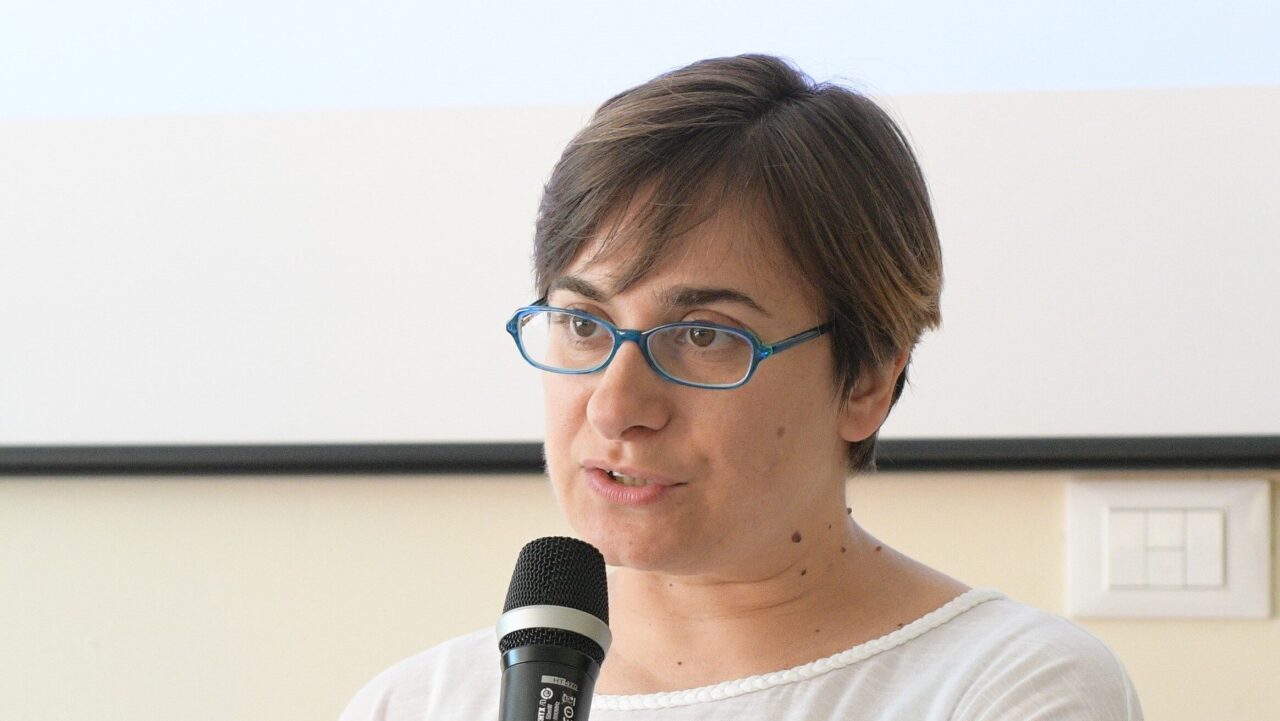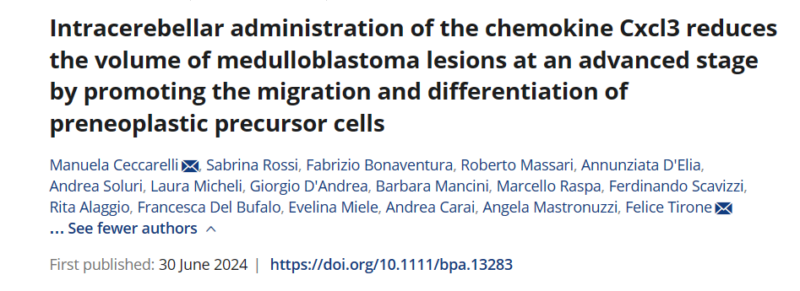
Angela Mastronuzzi: Intracerebellar administration of Cxcl3 reduces the volume of medulloblastoma lesions
Angela Mastronuzzi posted on LinkedIn about recent paper by Manuela Ceccarelli et al., titled “Intracerebellar administration of the chemokine Cxcl3 reduces the volume of medulloblastoma lesions at an advanced stage by promoting the migration and differentiation of preneoplastic precursor cells” published on Wiley Online Library.
Authors: Manuela Ceccarelli, Sabrina Rossi, Fabrizio Bonaventura, Roberto Massari, Annunziata D’Elia, Andrea Soluri, Laura Micheli, Giorgio D’Andrea, Barbara Mancini, Marcello Raspa, Ferdinando Scavizzi, Rita Alaggio, Francesca Del Bufalo, Evelina Miele, Andrea Carai, Angela Mastronuzzi, Felice Tirone.

“Published with Brain Pathology of Wiley.
‘Intracerebellar administration of the chemokine Cxcl3 reduces the volume of medulloblastoma lesions at an advanced stage by promoting the migration and differentiation of preneoplastic precursor cells’
The prognosis for many pediatric brain tumors, including cerebellar medulloblastoma (MB), remains dismal but there is promise in new therapies. In this model, reproducing human tumorigenesis, we identified the decline of the Cxcl3 chemokine in cerebellar granule cell precursors (GCPs) as responsible for a migration defect, which causes GCPs to stay longer in the proliferative area rather than differentiate and migrate internally, making them targets of transforming insults.
We demonstrated that 4-week Cxcl3 infusion in cerebella of 1-month-old mice, at the initial stage of MB formation, forces preneoplastic GCPs (pGCPs) to leave lesions and differentiate, with a complete suppression of MB development.
We found that Cxcr2 was variably expressed in all MB subgroups, suggesting that Cxcl3 could be used for therapy of different MBs.”
Source: Angela Mastronuzzi/LinkedIn
Angela Mastronuzzi is pediatric hematologist-oncologist and the Head of Neuro-Oncology Unit at Bambino Gesù Children’s Hospital (Italy). She is also a professor at the UniCamillus International Medical University, and a Board Member of AIEOP (Associazione Italiana Ematologia Oncologia Pediatrica). Her main fields of interest are CNS tumors and innovative therapies.
-
Challenging the Status Quo in Colorectal Cancer 2024
December 6-8, 2024
-
ESMO 2024 Congress
September 13-17, 2024
-
ASCO Annual Meeting
May 30 - June 4, 2024
-
Yvonne Award 2024
May 31, 2024
-
OncoThon 2024, Online
Feb. 15, 2024
-
Global Summit on War & Cancer 2023, Online
Dec. 14-16, 2023
